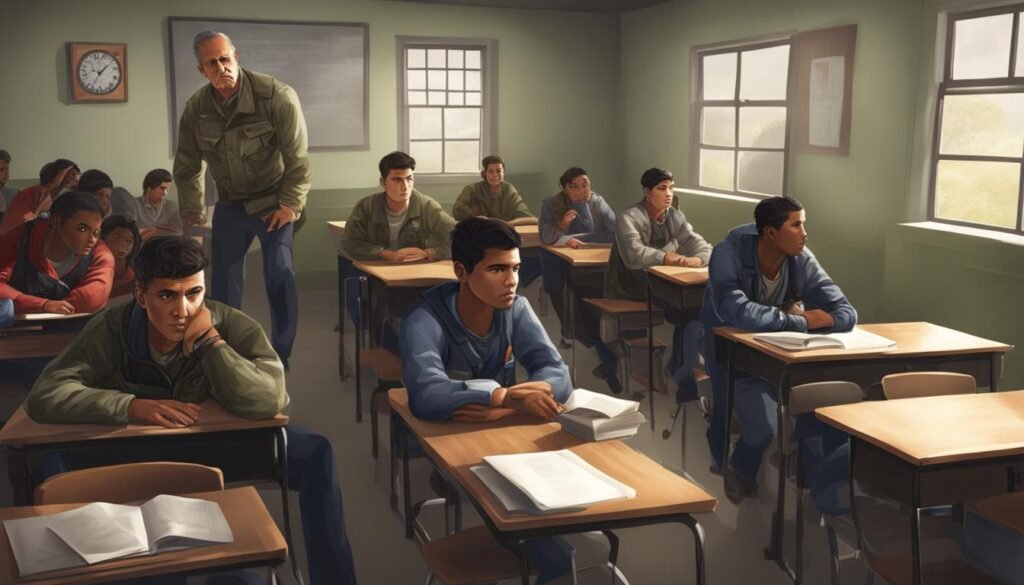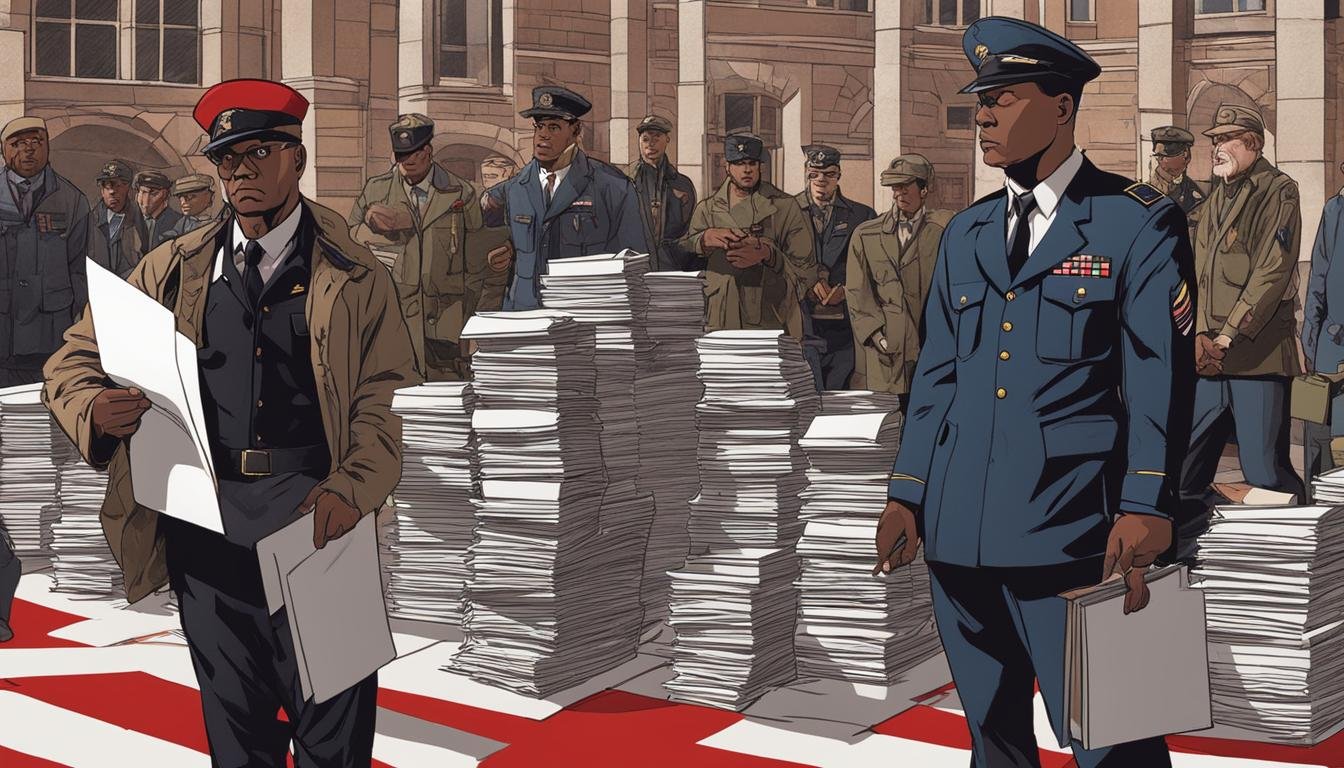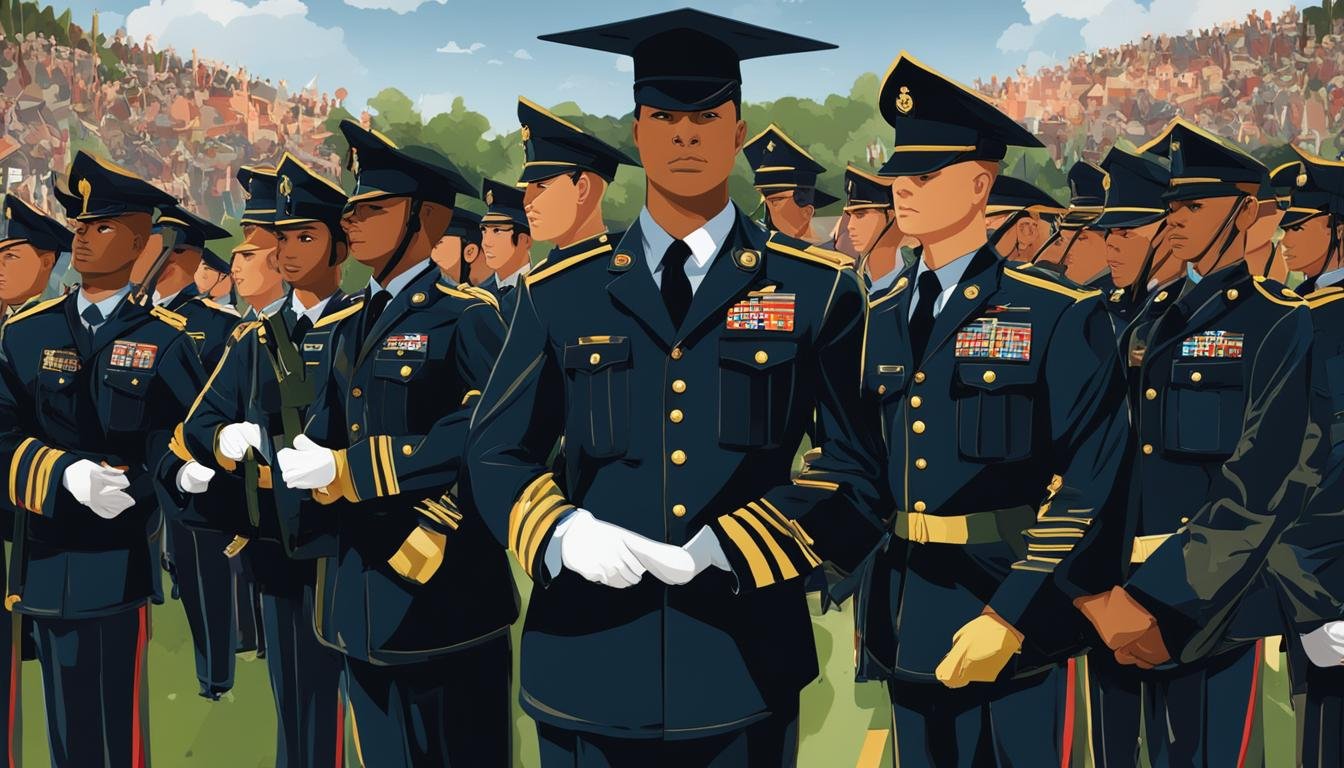Veterans who are transitioning back to civilian life and attending college face unique challenges in obtaining college credits. These challenges include higher rates of health-risk behaviors and psychological disorders compared to their peers, difficulty adjusting to campus life and interacting with students, and a lack of knowledge about military experiences among non-veteran peers. Furthermore, many veterans in college confront mental health conditions, face logistical challenges in the transition from military to college, and may struggle with the transfer of credit. These challenges can have a significant impact on veterans’ ability to earn college credits and successfully complete their education.
Key Takeaways:
- Veterans face unique challenges when trying to obtain college credits
- Health-risk behaviors and psychological disorders can hinder veterans’ college credit attainment
- Adjusting to campus life and interacting with non-veteran peers can be difficult for veterans
- Mental health conditions and logistical challenges further impact veterans’ success in earning college credits
- The transfer of credit can also pose challenges for veterans in college
The College Experience for Veterans and the Need for Support

Veterans who have served their country and are transitioning back to civilian life often face unique challenges when it comes to navigating the college experience. These challenges stem from their military background and can significantly impact their ability to succeed academically and socially. It is crucial for colleges and universities to recognize these challenges and provide the necessary support to ensure the successful integration and education of our veterans.
One of the main challenges that veterans face in the college environment is the difficulty in connecting socially with traditional students. Veterans have distinct life experiences and may struggle to relate to their younger peers who have not been through the military. This can lead to feelings of isolation and a sense of not belonging on campus. Additionally, veterans may find it challenging to adjust to the more autonomous and less-structured college environment after the discipline and regimentation of military life.
Another significant challenge is the cultural and ideological divide between veterans and non-veterans. Veterans bring a unique perspective shaped by their experiences in the military, and this can sometimes clash with the values and beliefs prevalent on college campuses. It is essential for colleges to create an inclusive and understanding environment where veterans’ perspectives are valued and respected.
“The transition from military to college life can be overwhelming, and it is crucial for colleges to provide support services designed specifically for veterans,” says John Smith, a veteran and advocate for veterans’ education. “By offering counseling, mentorship programs, and education about veterans’ experiences, colleges can help ease the transition and support veterans in their pursuit of higher education.”
In addition to social and cultural challenges, many veterans in college also deal with mental health conditions, such as post-traumatic stress disorder (PTSD) and anxiety disorders. These conditions can further impact their ability to succeed academically and may require targeted support and accommodations. It is essential for colleges to have robust mental health services in place to address the specific needs of veterans.
Overall, providing support and resources tailored to the unique challenges veterans face in the college environment is crucial for their success. By offering programs and services that address social integration, mental health, and cultural understanding, colleges can create an environment where veterans can thrive academically and personally.
What Challenges Did These Veterans Overcome to Earn College Credits?
These veteran college credit success stories exemplify the resilience and determination of our servicemen and women. From navigating the transition to civilian life to managing physical and emotional challenges, these individuals have demonstrated unwavering commitment to their education. Their inspiring journeys serve as a testament to the power of perseverance.
How Do Standardized Test Prep Courses Help Veterans in Getting College Credits?
Standardized test prep courses are essential for veterans’ test prep experiences in earning college credits. These courses help veterans sharpen their academic skills, prepare effectively for exams, and gain confidence in their ability to excel in college-level work. With the right test prep, veterans can maximize their potential and achieve academic success.
Overcoming Barriers to College Credit Attainment for Veterans
Veterans pursuing college credits often face numerous barriers that can hinder their progress and success. These challenges may include difficulties in accessing and maximizing educational benefits, hurdles in transferring credits from military training, and a lack of understanding about available support services.
One common obstacle for veterans is the complexity of navigating the education benefits system. Understanding eligibility requirements, applying for benefits, and ensuring timely processing can be overwhelming and time-consuming. This can delay the start of their college journey and put additional financial strain on veterans.
Transferring credits from military training to college can also pose challenges. While some institutions have clear policies and procedures in place, others may not recognize the value of military training or have a standardized process for evaluating and transferring credits. This can result in veterans having to retake courses they have already completed, leading to wasted time, effort, and resources.
Furthermore, veterans may face limited knowledge and awareness about the support services available to them on campus. These services, such as counseling, disability accommodations, and career guidance, can greatly contribute to veterans’ well-being and academic success. However, without proper information and guidance, veterans may struggle to access these resources and may not fully benefit from the support that is available to them.



